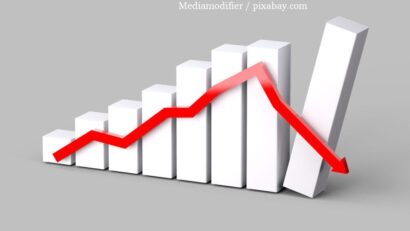Economic forecast for Romania
European Commission report shows Romania had one of the fastest growing GDP rates in the EU.

Corina Cristea, 17.03.2017, 12:55
The latest economic forecast on Romania’s
economy issued by the European Commission shows the country has registered one
of the fastest growing GDP rates across the European Union. Furthermore,
estimates show this situation will not change throughout the forecast horizon,
2018 included, being backed by fiscal relaxation and pay-rises. Unemployment,
which dropped significantly in 2016, will continue to be at a low level in the
following period of time, whereas inflation, which registered negative values
in 2016, will increase concurrently with the GDP.
According to forecasts, the budget
deficit is likely to increase, following tax cuts and an increase in public
spending. Therefore, the European Commission fears Romania might exceed the
deficit target set by the Romanian Government. Brussels has in fact sent a
letter to Romania on this issue, estimating that Bucharest may see significant
deviations to its medium-term budgetary objectives, with its structural balance likely to
be upset in 2017 and 2018.
Other estimates show, however, that in
the following two years, Romania may see some of the region’s highest levels
both in terms of consumption and economic growth. According to the state budget
endorsed by the Romanian Parliament, the
Government set a budget deficit target below 3% of the GDP, in keeping with the
provisions of the Maastricht Treaty. In an interview on Radio Romania, economic analyst Cristian Păun says we will very soon
find an answer to all these questions, because real figures will soon start to
emerge:
The figures for the first month of the year have already been made
public and they don’t look good. I’m convinced the same will be true of the
figures for the first quarter of the year, because the governing programme lays
emphasis on the redistribution of resources rather than on real measures to
allocate resources. When you redistribute resources in society solely by
raising state sector salaries, you obtain these resources by exerting higher
pressure on the private sector, which can no longer develop at the same pace.
The economic growth of the private sector will slow down, while we will see
higher consumption in the state sector, that is enhanced prosperity thanks to
pay-rises. This is like taking from some people and giving to others. Overall,
the effect is close to zero in terms of economic growth, because we practically
relocate resources to another area within the national economy. This is the
actual effect of redistribution measures.
Other measures taken by the government include increasing the minimum
wage and reducing the level of taxation for small enterprises. Analyst Cristian
Păun:
If taken separately, these measures may be viewed by some as being good
measures. Raising the minimum wage is like a mouthful of oxygen for people with
small salaries and has been supported by many in Romania, particularly trade
unions, and reducing taxation for micro-enterprises has the same effect on
these businesses. In business terms, however, the two measures are
contradictory and the effect is close to zero in the case of a small business.
This means that by increasing the minimum wage and reducing the level of
taxation for small enterprises, we will not see more small enterprises emerging
or developing. Quite the opposite is likely, that is many of these small
enterprises might close, given that, according to statistics, companies’ salary
expenses have increased dangerously in Romania, accounting for 35-40%.
The president of the Fiscal Council in Bucharest,
Ionuţ Dumitru, believes the 5% economic growth rate the 2017 state budget is
based on is very ambitious, and in this respect, budget revenues seem far too
optimistic. The analysis by the European Commission is part of the European
Semester procedure and includes an assessment of the imbalances that still
exist in some member states. According
to these reports, the European Commission identified economic imbalances in 12
EU member states. The situation of these countries will further be monitored,
while Romania only received a formal letter from the Commission that did not
mention any economic imbalances, said the Bucharest authorities.
The Finance Ministry recalls that the Romanian
Government has pledged to implement a governing programme to bring about
sustainable development, ensure investment in infrastructure and create new
jobs, while meeting the budget deficit target of less than 3% of the GDP. This target will be met, the Romanian
authorities give assurances in a letter to the European Commissioners Valdis Dombrovskis and Pierre Moscovici,
despite European Commission estimates that Romania will have a budget deficit
of 3.6% of the GDP in 2017.






























